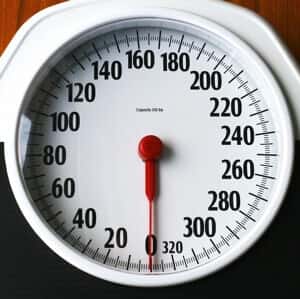
Watching your weight…literally…can help with weight loss.
A new study published in the Journal of Obesity shows that people who are trying to lose weight or maintain weight loss do better if they weigh themselves every day. Keeping track of weight on a spreadsheet or graph is the other behavior that makes a difference.
The two-year study included 162 people randomly assigned to a weight loss or a control group. Those in the weight loss group were told to lose 1 percent of their body weight any way they chose. They needed to maintain their new weight for 10 days, then were challenged to lose another 1 percent. The overall weight loss goal was 10 percent of body weight.
Meeting Weight Loss Goals
Daily weighing and recording weight acted to reinforce behavior such as skipping snacks or walking more. Weight loss experts used to counsel dieters against daily weighing, fearing that they would become discouraged if they didn’t see progress every day. But the tactic had apparently not been tested as it now has.
The researchers said the daily session on the scale worked significantly better for men than for women, though they do not know why.
Journal of Obesity, May 12, 2015
Keeping Track of Intake
Another behavior not covered in this study is keeping a food diary. This too has been shown to help people alter their behavior so that they consume less energy, possibly through eating more healthful foods.
As they say in business, you can’t manage what you don’t measure. Conversely, measuring and recording weight, recording food intake, and even recording exercise can all be useful tools in a weight loss program.
Electronic Helpers
Those who are electronically inclined may find that apps help them with this project. Some scales, such as the Withings, electronically record weight on a graph that gives trends at a glance. There are also apps that help people keep track of what they have eaten and provide a record, and of course there are now multiple gadgets that track physical activity and give feedback. While weight loss may be more complicated that simply “calories in/calories out,” that is a great place to start and tracking it can make a big difference.

